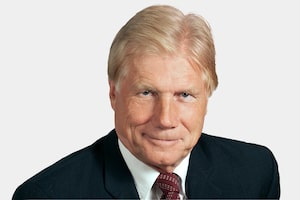The Conservatives have always been deeply suspicious – and it's a suspicion shared by many Canadians – that vast amounts of public money going to Indian bands is squandered. It goes down a black hole, as the saying goes.
Liberals held the suspicion, too. I recall one of prime minister Jean Chrétien's top advisers saying he'd heard lots of stories of band chiefs lining their pockets. The government didn't wish to pursue the matter, he said, for fear of being labelled racist.
Shortly after Stephen Harper's Conservatives came to power in 2006, they moved to scrap the Kelowna Accord that had been negotiated by Paul Martin's Liberals. It was Mr. Martin's pride and joy. It had been so difficult to get a consensus from native leaders. But for this agreement, a new funding deal to improve living conditions for first nations communities, he had found one.
Conservatives were more concerned about the health of the existing funding than about any new funding. They wanted increased oversight. As part of their new system of accountability, they were broadening the auditor-general's powers to scrutinize a whole new range of organizations. In so doing, they wanted Indian bands audited.
They went to auditor-general Sheila Fraser, whereupon Ms. Fraser, sources recall, told them to go jump in a deep river. She would have none of it. There was no need for her department to audit band chiefs, she reasoned, because they were already being audited heavily. They were being audited by municipalities, by provinces, by the private sector, as well as, in some instances, by Ottawa.
Ms. Fraser's department had done a report before the Tories came to power showing that an average band produces close to 200 reports a year. If the bands didn't file audited financial statements, their funding was cut off or delayed. The AG's office thought that for any government to pretend it didn't know where the money was being spent was foolhardy. There was likely some abuse, but no more or less than most other organizations.
The Conservatives' motivation in pushing for the band audits was political, the AG's office suspected. They wanted to score points with their base and the chiefs were an easy target.
This might help explain why the reaction in Attawapiskat to the government's sending in a third-party manager to monitor the band's financial affairs was so hostile. Visiting Attawapiskat, Liberal Leader Bob Rae said it was "disgraceful" that the government tried to turn the tables by putting the spotlight on how the band has managed its funds. Mr. Rae highlighted the government's cancelling of the Kelowna Accord. He put pressure on Mr. Harper to see the problems first-hand, pointing out that the PM's northern forays had put an emphasis on issues of defence and sovereignty, as opposed to the plight of the people living there.
Mr. Harper showed much sensitivity to native communities in 2008, when, in one of the most moving ceremonies the Commons has witnessed in years, he issued an apology for abuse suffered by native students of residential schools.
Next month, the PM will hold a summit with native leaders to find a way forward on a problem that for so long has been intractable. No leader likely knows this better than Jean Chrétien, who spent five years in the Indian Affairs portfolio under Pierre Trudeau. At one point, he tried to do away with the Indian Act, but was turned back by native leaders who feared assimilation. Later, as prime minister, there was one department whose budget Mr. Chrétien wouldn't allow to be cut. It was Indian Affairs. He had a poignant first-hand appreciation of the native peoples' burden. He and his wife, Aline, adopted a native boy, Michel, who had a great many difficulties.
If Mr. Harper and Mr. Chrétien were on better terms, it would be good for them to get together before the January summit. They could discuss ways to address the native peoples' plight. One of those ways is surely not more oversight and auditing of Indian bands.
 Lawrence Martin
Lawrence Martin